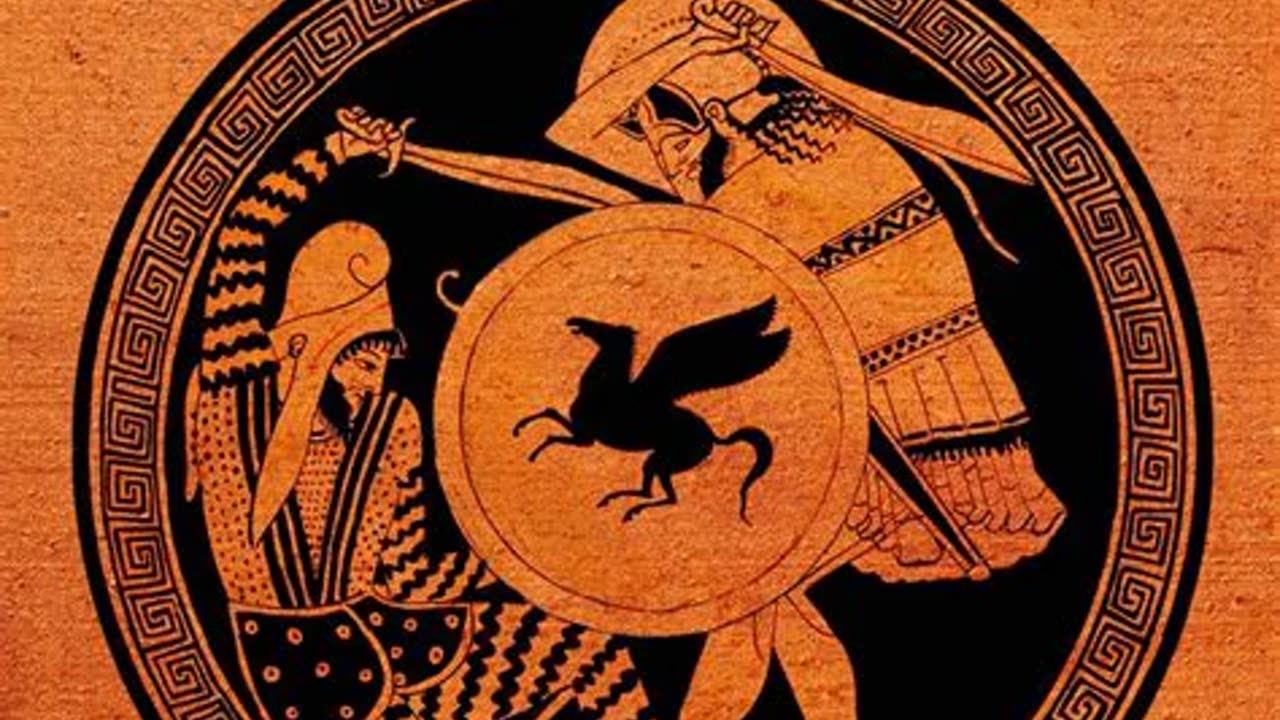Premium Only Content

The Histories by Herodotus | Summary
Buy Here: https://amzn.to/43Lm9WI
"""The Histories"" is a historical work written by Herodotus, often referred to as the ""Father of History."" Completed around 440 BCE, it is considered one of the earliest and most influential works of historical writing in Western literature.
""The Histories"" is a vast compilation of accounts and narratives that aim to explore the causes and events of the Greco-Persian Wars, particularly the conflicts between the Persian Empire and the Greek city-states. However, Herodotus goes beyond mere military history and delves into cultural, geographical, and ethnographic aspects of the regions and peoples involved.
The book is divided into nine books or ""logoi,"" each covering a specific period or aspect of the conflicts. Herodotus begins with an introductory section, setting the stage for the Persian Empire's expansion and the historical background leading up to the wars. He then proceeds to narrate the series of military campaigns, battles, and diplomatic events that took place.
What sets ""The Histories"" apart is Herodotus's storytelling style, incorporating anecdotes, mythological accounts, and personal observations alongside historical facts. He often presents contrasting perspectives and explores the motivations, actions, and beliefs of various individuals and cultures involved. Herodotus also discusses topics such as customs, traditions, and cultural practices, providing valuable insights into the societies of the time.
""The Histories"" is not without its critics, as some have questioned the accuracy of certain accounts and the extent to which Herodotus relied on hearsay and embellishments. Nevertheless, the work remains significant for its contribution to the development of historical writing and its preservation of historical knowledge from the ancient world.
In summary, ""The Histories"" by Herodotus is a monumental work that recounts the Greco-Persian Wars and delves into the cultural, geographical, and ethnographic aspects of the regions and peoples involved. It is a rich and engaging narrative that combines historical accounts with storytelling elements, providing valuable insights into the ancient world and its historical events."
-
 1:10:55
1:10:55
Donald Trump Jr.
2 hours agoBREAKING NEWS: My Father Revokes Biden-Maduro Oil License, LIVE with Maria Corina Machado | Triggered Ep.220
49.2K90 -
 LIVE
LIVE
The Jimmy Dore Show
1 hour agoTrump AG Pam Bondi WON’T Release Epstein List! Corp Media ABANDONS Greta Thunberg! w/ Chris Hedges
9,908 watching -
 LIVE
LIVE
Sarah Westall
43 minutes agoX-Files True History, Project Blue Beam, Cabal Faction War w/ Former FBI Agent John DeSouza
334 watching -
 LIVE
LIVE
Dr Disrespect
8 hours ago🔴LIVE - DR DISRESPECT - NEW PC VS. DELTA FORCE - MAX SETTINGS
2,881 watching -
 49:04
49:04
Lights, Camera, Barstool
1 day agoIs The Monkey The Worst Movie Of The Year?? + Amazon Gets Bond
8.23K1 -
 24:19
24:19
Adam Carolla
19 hours agoDiddy’s Legal Drama Escalates, Smuggler Caught Hiding WHAT? + Philly Eagles & The White House #news
15.8K3 -
 10:12
10:12
Mike Rowe
2 days agoClint Hill: What A Man. What A Life. | The Way I Heard It with Mike Rowe
15.7K5 -
 1:31:52
1:31:52
Redacted News
3 hours agoBOMBSHELL! This is war! FBI whistleblowers reveal Epstein files being destroyed? | Redacted News
96.2K249 -
 48:55
48:55
Candace Show Podcast
3 hours agoSTOP EVERYTHING. They FINALLY Mentioned ME In The Blake Lively Lawsuit! | Candace Ep 152
70.6K89 -
 1:02:51
1:02:51
In The Litter Box w/ Jewels & Catturd
23 hours agoWhere are the Epstein Files? | In the Litter Box w/ Jewels & Catturd – Ep. 750 – 2/26/2025
61K53